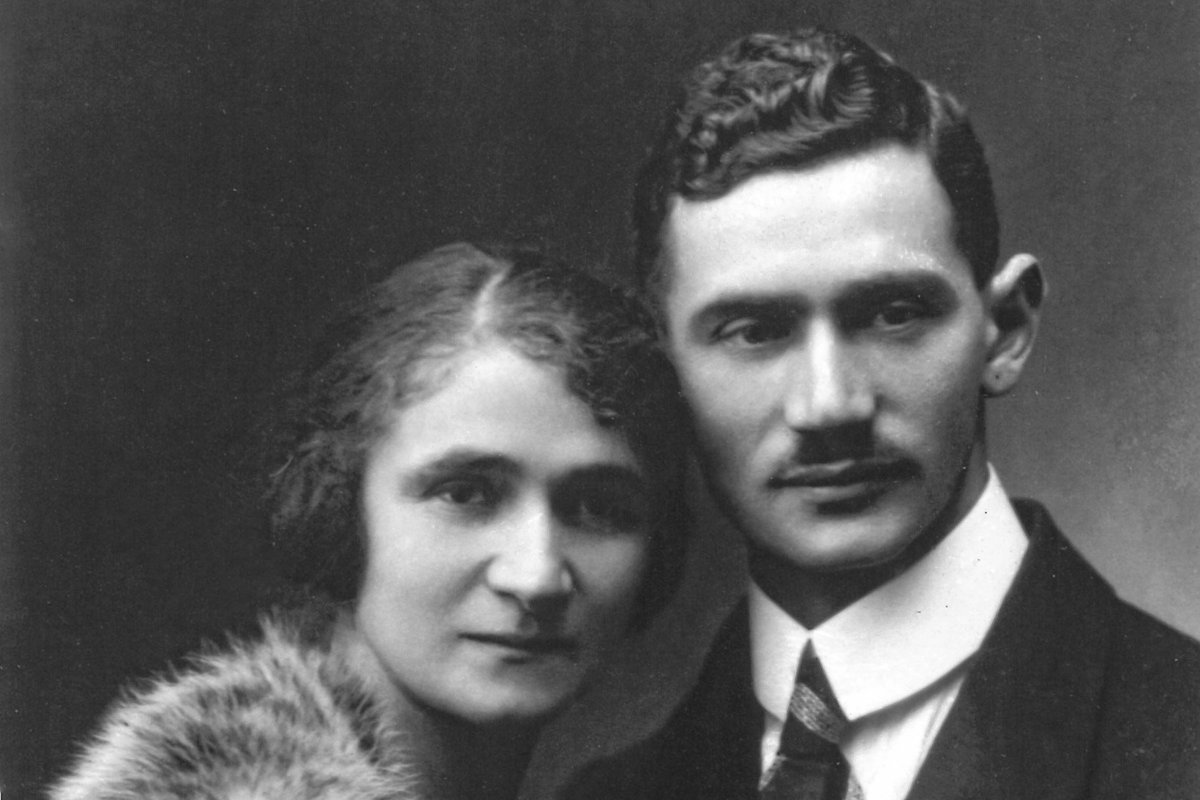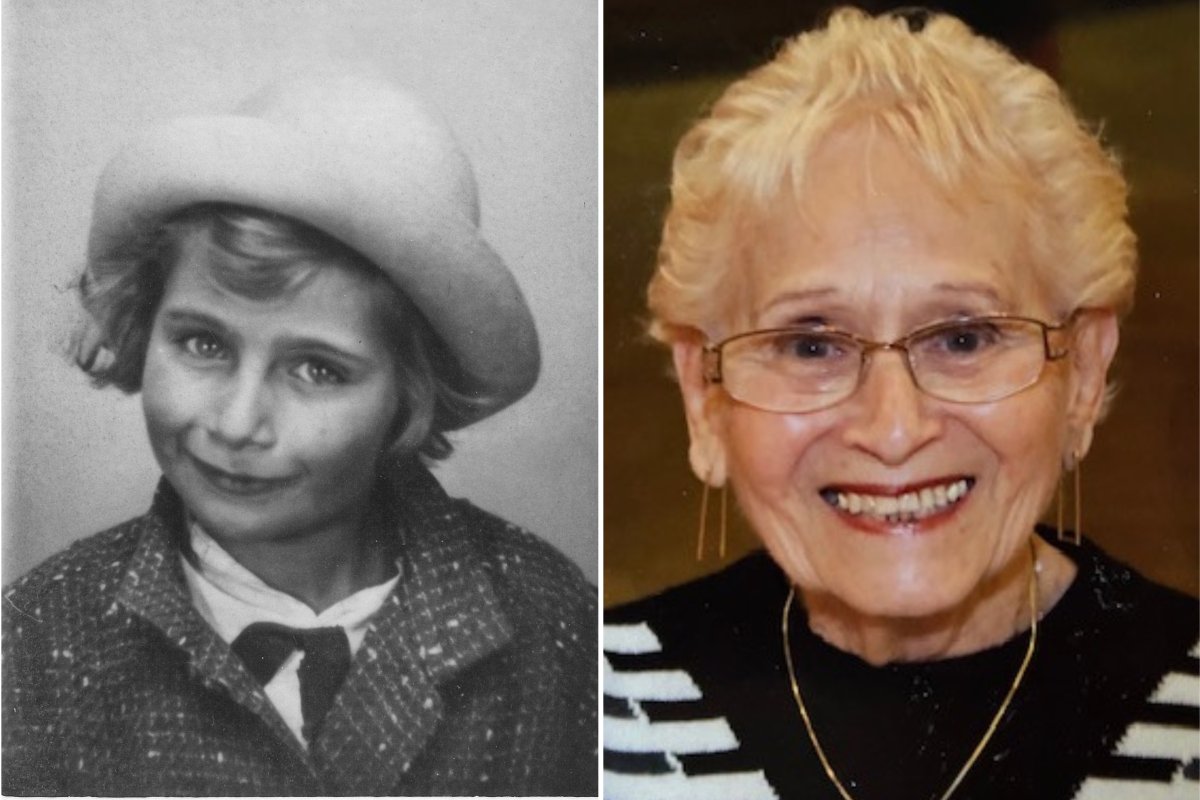Dachau was the original concentration camp, the camp that all the others would be modeled after. Enclosed by electrified fences and surrounded by a ditch, the compound was surveilled by seven tall watch towers mounted with machine guns. The music of antisemitic composer Wilhelm Richard Wagner (Hitler's favorite composer) was played continuously in the camp. To this day, Wagner is banned in Israel until the last Holocaust survivor passes.
It was days after Adolf Mueller was first abducted that he arrived at the gates of Dachau. He first went to the local police station and was thrown into a common jail cell along with other Jewish men. He scarcely uttered a word to anyone. He was a respected businessman; of course he did not belong at the police station. He thought all this nonsense would get sorted out soon.
Very quickly, it seemed he was correct. After spending one night in the jail, Adolf was ordered out of the holding cell before dawn. He felt a wave of relief upon being awakened from his uneasy sleep. He was being released. Or so it seemed.

He and two dozen other men were escorted from the jail outside to a truck. Officers ordered them into the truck bed. Then, under cover of darkness, the truck drove out of town.
At a small train depot outside Stuttgart, Adolf and the other local prisoners joined hundreds of other men. There they were ordered onto a train. Crammed into a train car without even a place to sit, Adolf felt the locomotive lurch forward. The moving train left his family and his life behind. As it gained speed, Adolf felt his hope begin to drain away.
Adolf soon learned that at Dachau, the day began each morning at five, when prisoners were roused from their sleep in the shivering cold and were forced to report for their first appelplatz, roll call, in the square outside the barracks. Then, each long day stretched out ahead of them. The hours were a hell of marching or labor—Adolf would be assigned to the gravel pit—interrupted by roll call. At each appelplatz, they were made to stand perfectly still, sometimes for an hour or more; those who failed to remain still were struck or shoved to the ground.
One afternoon, when an older man asked to relieve himself, his request was refused, and he was hit with such force that he crumpled and fell. Guards issued sharp orders to the other prisoners not to help him. Then, while the guards watched, the man was beaten to death by a Stubenälteste (an Aryan prisoner—as the first prisoners were not Jews). The man's lifeless body was carried away.
In those very first days, Adolf was mortified at the treatment forced upon fellow Jews and was already fixating on the idea of escape.
***
It was one thing to use his old party papers to get through a road checkpoint, Max thought as he zoomed along the now quiet autobahn. It was another thing entirely to brandish his party identification at the gates of the concentration camp and expect the guards to nod like sheep and release Adolf with no questions asked.
Of course, they would not release Adolf.
This thought settled over him, pressing against his chest and his throat. What could he possibly have been thinking? He had not wanted to leave their family this way, and he had let himself be swayed by Justin's desperation.
But what if he could not save Adolf? Max gripped the steering wheel tightly. Of course, they would scrutinize his papers. Of course, they would realize that Max was a castoff, an imposter, a Jew. They would either kill him on the spot or put him in the camp alongside the cousin he was trying to save. These thoughts consumed him as he drove onward.

Max had been somebody who took pride in his Judaism and his love for his country. His conversion to Catholicism had been out of despair, for basic safety. As his fingers squeezed the hard black steering wheel, his mind dwelled on the years he had served the Reichsbank—even helping to make this very highway!
He had served the bank, but [Hjalmar] Schacht had served himself. Schacht's words echoed in Max's head. Forget your idealism. Get rich... don't let anything stand in your way. When the Führer came to power, and Schacht was appointed Minister of Economics, he had looked the other way while his old colleagues from the Weimar Republic were imprisoned. Some of them had been executed.
Max's anxiety mounted. This was absurd, he thought, the whole mission was absurd. Of course, any guard worth his salt would look carefully at Max's papers and see the truth. That Max had been dismissed. That Max was Jewish. That his former name was Rosenfeld.
Yet here he was, risking his own life driving through the night to Dachau. He continued to rethink this ludicrous plan and the childish hope that whichever brute was standing guard would willingly unlock the doors and give Adolf his freedom.
The superior officer who arrived in the middle of the night had the creases of age and a look of exhaustion as he came through the door into the officers' barracks. When Max saw the man, he felt the dread close over him. This was a seasoned officer who would never be fooled by Max's old party book. He would look at it closely, and Max would be finished.
"I've been waiting an hour," said Max sharply. What else could he say? To do anything else would have been to hasten his own end.
"Our gravest apologies," the officer said, nodding solemnly, and Max was surprised at what sounded like sincerity. "We are only following orders," he added, "of course you understand."
Max nodded stiffly.
"Your party book, sir," the officer said and he gestured vaguely toward the wall behind him.
Swallowing, Max reached into the breast pocket of his jacket and took out his identification. The officer grabbed it unceremoniously and went to the nearby wall, where he unlocked a drawer in the desk beside the telephone. From the drawer, he removed a large accounts book and set it on the desk.
He began thumbing through its pages, finally stopping at a particular place. "Name of the prisoner to be released?" he asked, glancing over his shoulder at Max. "Mueller, Adolf."
"Reason for his release?"
Max, who had been scarcely able to maintain his composure through this charade, now felt the room start to spin. "Excuse me?" he said, swallowing.
The officer turned around and looked directly at Max. "What is the reason for the prisoner's release?"
Max cleared his throat. "I'm just following orders," he said.
The officer nodded and turned back to the accounts book, where he made another note. Then he closed the large book and stood up. He grabbed Max's identification and handed it back to him.
"They're getting Mueller," he said as he left the barracks. "It will only be another minute."
It seemed a terribly long time, but it was only minutes before the first guard appeared again. He pulled open the door to the officers' barracks and poked his head inside.
"We have him, sir," he announced.
Shooting up from his chair, Max followed the guard out. There, in the yard, flanked by two other officers, was a thin man wearing the baggy uniform issued to all prisoners. The man was gaunt and pitiful-looking, his face dirty, ears protruding strangely from his head.
Max felt a wave of confusion. They had brought the wrong man. After all this, they had brought the wrong man. What if Adolf had not survived?
"Is this—prisoner Mueller?" Max asked.
"Yes, sir," said the guard.
It was then that Adolf lifted his head and looked directly at Max, and a bolt of electricity passed between them.
This is an adapted extract from Kathe Mueller Slonim's posthumous memoir. She died in 2021. Prior to her passing, Slonim wrote down the major events of her life, along with a brief family history written by her uncle, Julius Falk, together to form the backbone of this story. Escape from Dachau: A True Story of Survival, Courage, and a Daring Escape in the Face of Unthinkable Evil is available on Amazon.
All views expressed in this article are the author's own.
Do you have a unique experience or personal story to share? Email the My Turn team at myturn@newsweek.com
Uncommon Knowledge
Newsweek is committed to challenging conventional wisdom and finding connections in the search for common ground.
Newsweek is committed to challenging conventional wisdom and finding connections in the search for common ground.
About the writer
Kathe Mueller Slonim passed away in 2021. Prior to her passing, Slonim wrote down the major events of her life, ... Read more
To read how Newsweek uses AI as a newsroom tool, Click here.








